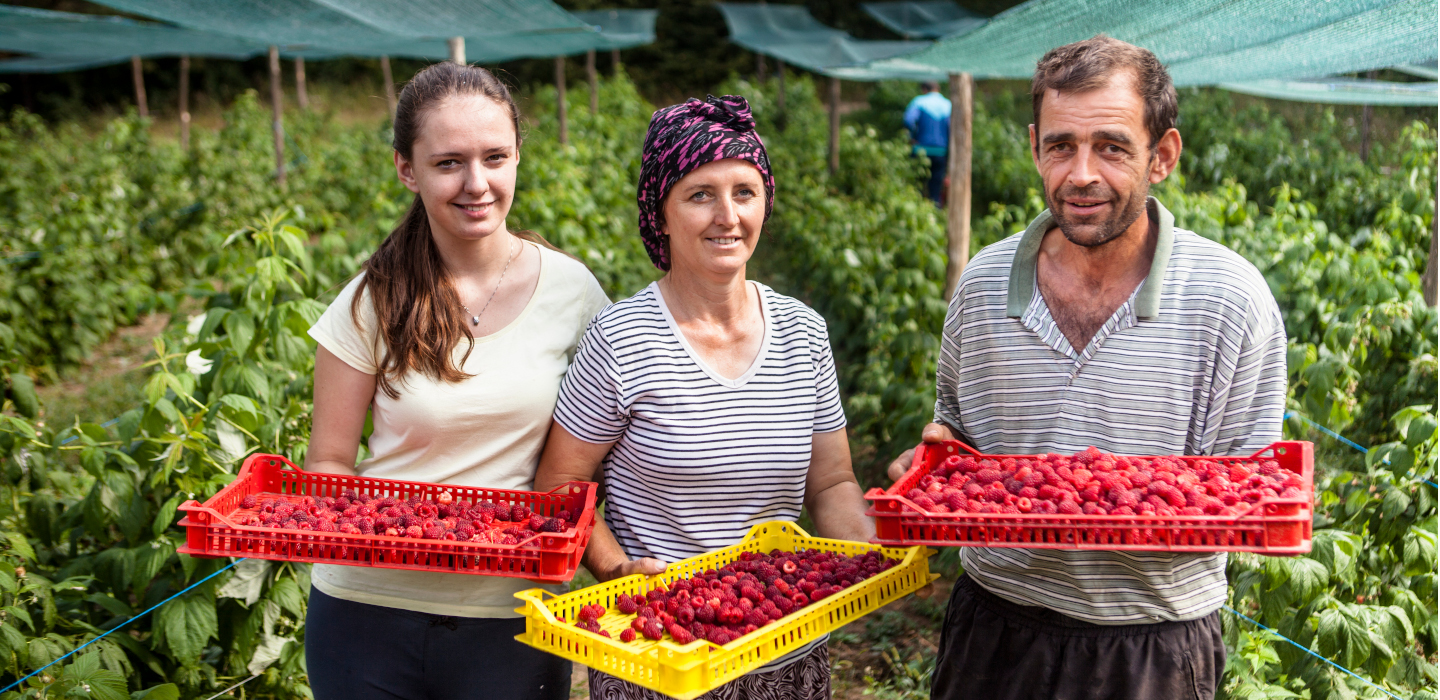Fast and flexible: IFAD’s first successful project restructuring protects smallholders in Bosnia and Herzegovina
IFAD Asset Request Portlet
Asset Publisher
Fast and flexible: IFAD’s first successful project restructuring protects smallholders in Bosnia and Herzegovina
Estimated reading time: 2 minutes
The COVID-19 outbreak has disrupted agricultural and food systems around the world, along with the livelihoods and food security of the poorest rural communities – precisely the groups of people whom IFAD concentrates its efforts on. Now more than ever before, IFAD member states are facing the challenge of helping farmers access safe labour practices while ensuring the continued production and marketing of agricultural products.
Such is the case in Bosnia and Herzegovina. When this small Balkan country began recording its first cases of COVID-19, strict containment measures were quickly put in place: a state of emergency was declared on 5 March, and quarantine measures for goods and people were imposed on all border crossings. This latter measure in particular generated a lot of uncertainty, as the country relies heavily on imports for its food supply. In an effort to ensure nationwide food security, the Government of Republika Srpska, one of Bosnia and Herzegovina’s parliamentary entities, decided to incentivize the country’s farmers to establish or increase production of staple crops. Nevertheless, the country was still expected to experience food shortages.
On 24 March, IFAD received a letter from the Government of Republika Sprska requesting the repurposing of €1 million from the Rural Competitiveness Development Programme (RCDP) to respond to the adverse effects of COVID-19 on the country’s poorest rural people. By 26 March, IFAD had approved a support package for 9,000 vulnerable households, aimed at strengthening the production of crops essential to food security. Farmers were to be provided with vegetable seeds, seedlings and fertilizers by the programme, and they could then grow those crops for household subsistence or sell them directly at local markets. It was IFAD’s first-ever project restructuring in response to COVID-19.
IFAD’s rapid response allowed farmers to hit the planting season right on time, and deploying the crisis response through RCDP’s well-established implementation network allowed us to maximize the scope of the intervention with less time-consuming efforts. The local business community and representatives of the municipalities and farmers’ organizations contributed to the choice of crops to be supported. They also assisted with the distribution of packages and provided access to local facilities, as well as technical assistance.
RCDP was designed to assist poor smallholders by, among other means, increasing their access to markets. It was anticipated that promoting the production of crops with high value potential, such as raspberries and gherkins, would reliably raise participants’ incomes and serve to include them in sustainable rural development. Following the restructuring, they now produce essential crops such as potatoes, carrots, onions and other vegetables as well.
This support was enthusiastically welcomed by RCDP farmers, and even made headlines in the country’s major newspapers. Improved domestic production means not only improved food security and nutrition for the most vulnerable, but also increased incomes for the poorest rural households. This in turn strengthens the resilience of the country’s rural economy, which remains dangerously dependent on a disrupted international trade system.
Following the restructuring of the RCDP, many other IFAD projects have since been successfully reworked in order to respond to the impacts of COVID-19 on food security and rural livelihoods. We have been able to quickly adapt our internal procedures to this unprecedented challenge, deploying an effective and efficient crisis response throughout IFAD’s established implementation networks in various countries. The Bosnia and Herzegovina case demonstrates our increased commitment to serving the poorest and most vulnerable rural people during these uncertain and difficult times of crisis.
Learn more about IFAD’s work in Bosnia and Herzegovina.
Read more about IFAD’s response to COVID-19.
Publication date: 15 May 2020